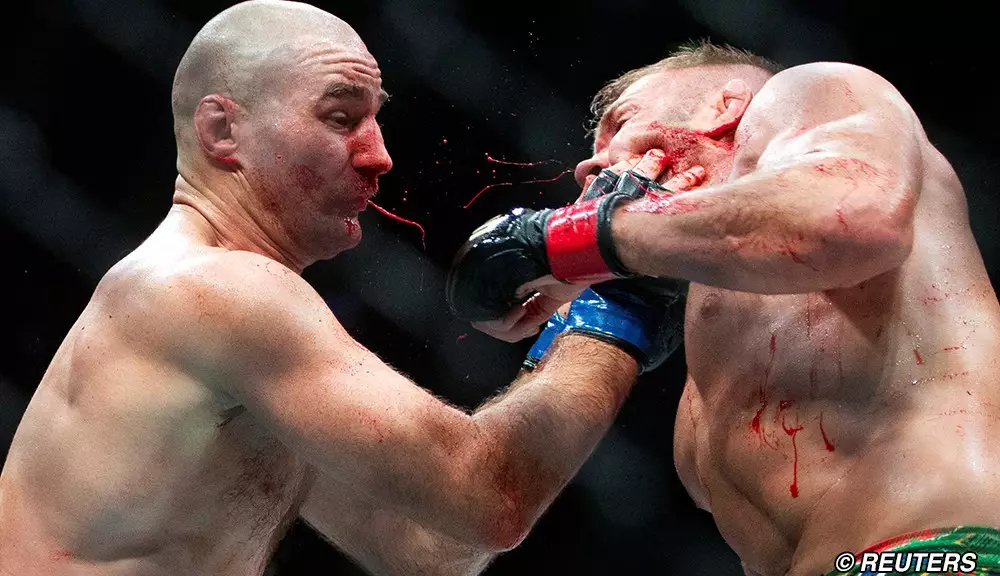The world of mixed martial arts (MMA) is rife with passionate opinions, especially following high-stakes events like UFC 312. The bout headlined by middleweight champion Dricus Du Plessis against Sean Strickland garnered significant attention, but not all of it was positive, particularly directed at Strickland. After suffering a devastating loss—the second in as many encounters with Du Plessis—Strickland faced a wave of criticism for his performance. Fans and analysts alike chastised him for what they deemed a lackluster showing, primarily focusing on his inability to push through the challenges presented by Du Plessis.
Dominick Cruz, a respected figure in the MMA community, stepped up to defend Strickland’s honor in a recent episode of the “Believe You Me” podcast. Cruz pointed out that critics failed to adequately consider the physical ordeal Strickland endured during the fight, particularly after he broke his nose in the fourth round. In the often brutal arena of professional fighting, injuries can severely hinder performance, altering strategies and mental focus.
Cruz drew parallels with other fighters who have faced adversity in the octagon, notably mentioning Justin Gaethje and his battles. Just as Gaethje’s toughness has earned him respect despite wounds sustained during bouts, so too should Strickland’s resilience be acknowledged. Cruz argued that the pain of a broken nose is not just a physical issue; it can impact a fighter’s ability to think clearly and execute their game plan.
Furthermore, Cruz illuminated an often-overlooked aspect of the fight game: the effect of pre-fight bravado on post-fight evaluations. Strickland’s vocal declarations about being prepared for war may have inflated expectations, setting him up for increased scrutiny. Fans and commentators tend to amplify the fallout from a fighter’s words, sometimes leading to harsh judgments that overshadow their actual performance in high-pressure situations.
Cruz emphasized that this heightened critique is not a fair reflection of Strickland’s skills or character. Instead, it’s a consequence of the specter of expectation that looms larger over fighters who talk a big game prior to a match. In essence, Strickland’s honest persona and willingness to fight hard should be lauded rather than scrutinized.
Ultimately, while the sport demands excellence and adaptation in the face of adversity, the reactions to a fighter’s performance must also account for the human element involved. Cruz’s defense of Strickland hinges on a core belief in recognizing the complexities of fighting at such a high level. Injuries, psychological stressors, and the relentless pace of competition all contribute to the overall narrative of a fighter’s career.
In an era where criticism can often drown out appreciation, it’s vital to balance judgment with empathy. Sean Strickland’s journey—marked by resilience despite significant challenges—deserves not just scrutiny but also the acknowledgment of the hard-fought battles he’s faced within the octagon. Rather than lauding flashy victories alone, the MMA community must embrace the grit and determination that define true fighters.

